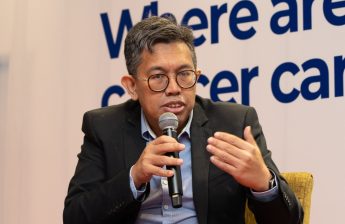The Group of Professors of Health and Medicine would like to rebut various points in the Academy of Medicine of Malaysia’s (AMM) statement titled “Joint Cabinet Memorandum: A Milestone For Medical Specialist Training In Malaysia — AMM”.
1. AMM statement: The proposed amendments to the Medical Act will allow both pathways for specialist training to be implemented more systematically from the legal perspective.
Our response: Local university specialist programmes are always systematic and comply with all legal requirements. The problem is that parallel pathway programmes do not comply with our local laws.
There have been no issues with local specialist programmes. The issue is that parallel pathway programmes have not been conducted according to the Education Act 1996 [Act 550], the MQA Act 2007 [Act 679], and the standard operating procedures required by the Department of Higher Education (JPT) under the Ministry of Higher Education for any institution to run academic or professional programmes legally in Malaysia.
2. AMM statement: To ensure quality, all specialist training programmes under universities and the parallel pathway should meet the standards and the specialty-specific requirements of the Malaysian Medical Council (MMC).
Our response: The statement is incorrect regarding our university programmes. Our local programmes always meet the standards and the speciality-specific requirements set by the MMC.
The statement only applies to parallel pathway programmes. For example, parallel pathway programmes like the Royal College of Surgeons of Edinburgh in cardiothoracic surgery are not recognised in the United Kingdom, and do not comply with MMC requirements.
3. AMM statement: Recognition of quality-assured training programmes will enable doctors who have fulfilled all the necessary requirements to register as medical specialists in the NSR.
Our response: All educational programmes in Malaysia should undergo regular quality assurance audits by MQA accreditation panels to ensure they meet quality standards. The parallel pathway programme should comply with this requirement.
Recognising quality-assured training programmes will allow doctors who meet all necessary requirements to register as medical specialists in the NSR.
The parallel pathway programme, such as the Royal College of Surgeons of Edinburgh in cardiothoracic surgery, is not a quality-assured training programme, since it is not recognised in the UK.
Malaysia should not adopt such programmes, and graduates from these programmes should not be registered as medical specialists in the NSR. If they are to be registered, the criteria for registration must be explicitly written and adopted by the MMC and NSR.
4. AMM statement: These guidelines assess the training, specialist qualifications, and competencies achieved upon completion of training. Under the purview of the MMC, a similar evaluation process which is aligned to the Medical Act has been continuing to enable medical practitioners, both from the Master’s programmes and the parallel pathways, to be registered in the NSR.
Our response: Under the MQA, we already have the Malaysian Qualification Framework (MQF) as guidance for all higher education providers seeking accreditation for their programmes. Local university programmes that adhere to the MQF will not encounter issues with NSR registration.
Local programmes are aligned with the MQF, which includes a scheduled monitoring process and renewal of accreditation status accordingly.
The fact that parallel pathway programmes have not undergone the same process as local programmes since their initiation in 2013 indicates that there is no documentation on the quality process — specifically, who conducts it, how it is conducted, what it entails, and when it occurs, since the first batch graduated.
It also shows that the institutions offering the programme are not registered as Private Institutes of Higher Learning (IPTS), and the Ministry of Health should be the custodian of the programme.
Conclusions
- The proposal by AMM pertains to parallel pathway programmes. There are no issues with local university specialist programmes.
- The emphasis is on the parallel pathway programmes’ refusal to comply with existing laws. These laws have already proven effective in producing high-quality and safe graduates in our country because the programmes are quality assured by MQA.
- The existing Medical Act and laws are sufficient to accommodate both local and international programmes. What needs to be done is to legalise the non-compliant parallel pathway programmes through legal and transparent quality processes.
- It is wrong for AMM to conclude and accept parallel pathway programmes that the “mother university” (the university offering the programme) clearly states as not recognised, while Malaysia is doing the opposite.
- The structure and implementation of local programmes are different from those of parallel pathway programmes.
- This is the personal opinion of the writer or publication and does not necessarily represent the views of CodeBlue.






